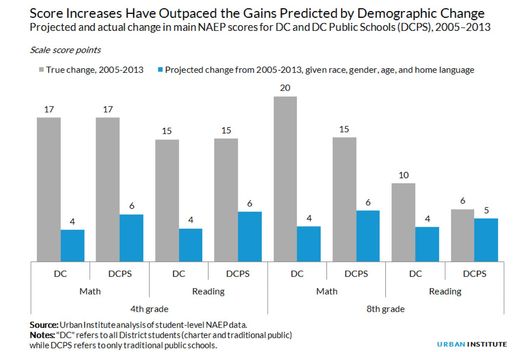If NAEP “Proficient” Means “Grade Level Proficiency,” Then America’s Private Schools Are in Trouble
Former TV anchor and current, privatizing reform conduit Campbell Brown believes that a student’s achieving the level “proficient” on the National Assessment of Educational Progress (NAEP) equates with that student being “at grade level” or (more precisely, according to her) having achieved “grade level proficiency.”
In a May 16, 2016, Slate interview, Brown said the following:
Two out of three eighth graders in this country cannot read or do math at grade level. We are not preparing our kids for what the future holds.
As she introduces an article written by Carol Burris, Washington Post education writer Valerie Strauss sums up the social media upheaval that ensued over Brown’s equating NAEP “proficient” with being “at grade level”:
Another day, another fight in the education world. This one is worth delving into because it is really not about who said what but about fundamental understandings — and misunderstandings — of standardized testing data and how it drives policy.This one started when education activist Campbell Brown said that two-thirds of U.S. eighth graders are below grade level in reading and math. Tom Loveless, a former Harvard professor and teacher who researches student achievement, then tweeted that he has never seen data showing that, and asked Brown to explain her sourcing. She said that she was referring to proficiency rates on the National Assessment of Educational Progress.NAEP, as the test is known, is sometimes referred to as “the nation’s report card” because it is seen as the most consistent measure of U.S. student achievement since the 1990s. It is administered every two years to groups of U.S. students in the fourth and eighth grades, and less frequently to high school students. When Loveless told her that NAEP proficiency scores do not refer to grade level, a social media fight ensued between Campbell and her critics.In this post, Carol Burris, a former award-winning high school principal who got involved in the Twitter exchange, explains why the substance of this debate matters.I asked Brown to comment about her statement that two out of three eighth graders cannot read or do math at grade level and why she thinks NAEP proficiency means grade level. She said in an emailed response, which you can see in full below, that “if I were trying to be completely and utterly precise then I would have specified ‘grade-level proficiency,’ instead of ‘grade level’ in the context of NAEP score,” and that “any reasonable person or parent” would understand what she meant.
The achievement level preceding “proficient” is “basic,” and it is “at or above basic” that the bulk of students’ scores tend to fall.
What Brown erroneously proposes is that NAEP “proficient” equals “grade level proficiency” and that not achieving NAEP “proficient” equals “not at grade-level proficiency.”
If the above were true, then it is not only America’s public schools that one must If NAEP “Proficient” Means “Grade Level Proficiency,” Then America’s Private Schools Are in Trouble | deutsch29:














